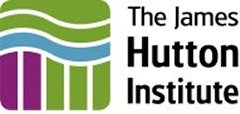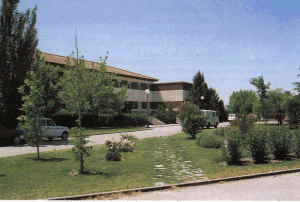 The James Hutton Institute
The James Hutton Institute
This page is no longer updated. The Macaulay Land Use Research Institute joined forces with SCRI on 1 April 2011 to create The James Hutton Institute.
First European Workshop of the LSIRD network
Centro de Investigación y Desarollo Agraria, Granada, 23rd
- 24th May 1997
 |
|
INTRODUCTION
Established in 1996 to explore the future role that livestock farming will
play in the development of the European less-favoured areas, and the
implications of this for research, the LSIRD network is organising a series of
conferences and workshops that will draw together the experience of a diverse
group of experts in this field.
The LSIRD network held its first interdisciplinary conference in Greece
(Nafplio) in January 1997. The programme explored the areas in which different
research disciplines could be applied to address the specific problems
encountered in LFA livestock production, and possible approaches to enhance the
role of livestock in European rural development.
Moving on from Nafplio, a series of four workshops will examine in detail
four main factors likely to have a significant influence on future LFA
livestock farming, and to identify specific areas in which future research will
be needed. These factors are:
This first workshop will examine the ways in which current rural policies
influence the types of production system found currently in the LFAs, and
discuss how these policies are likely to develop given the influence on them
from the WTO negotiations, the incorporation of Eastern European countries into
the CAP, the "Cork Conference", and the demands for increased
emphasis in the environmental management role of agriculture. This will be set
against the current trends in the livestock production and product processing
chain and its associated technologies.
The workshop will then draw together these strands into a scenario, or
series of scenarios of future policy situations in the LFAs and make a series
of recommendations of the implications that these will have for research
directed at LFA livestock farming.
DAY 1
The programme has been broken down into 12 key
themes. Each of these is addressed by a recognised expert in the field, who
will prepare a short report (1000 - 1500 words) prior to the workshop - in time
for these to be circulated to the rest of the participants (deadline
9th May). These reports will be used as a basis for the chapters in
the workshop report that will form the outcome of the meeting.
It is intended that the time taken in presenting these reports at the
workshop should be kept to a minimum (5 minutes), leaving time for full
participatory discussion. On the strength of these discussions, further points
may be added to each report reflecting the range of experience present. Total
time for consideration of each report is about 25 minutes. There will be a
concluding session for general discussion.
Subsequent to the meeting, a draft of the full workshop report, as amended
will be circulated to all the participants for approval before publication.
A field trip has been arranged to visit nearby rural development initiatives of the local development agency in Orgiva, under the guidance of staff from the Centro de Investigación y Desarollo Agraria (Centre for Agricultural Research and Development). These include a goat cheese enterprise, textile and artisan workshops and agritourism.
WORKSHOP VENUE & ACCOMMODATION
Both the workshop and the accommodation will be at the Centro de
Investigación y Desarollo Agraria, Granada (Contact Dr Javier Calatrava
(Tel +34 58 267311 Fax: +34 58 258510).
 |
 |
|
| Location of the Institute |
Residencia |
Unless otherwise arranged with LSIRD, participants should book their own
flights, using as far as possible reduced-rate fares (e.g. APEX). It may be
found that international travel is more convenient to Malaga, rather than
Granada itself, and a bus will be arranged if necessary by LSIRD when all the
flight details are known. It is important that
LSIRD is informed as soon as
possible of your :
Travel expenses may be claimed back in full from LSIRD network for which we will need the ticket invoice and an appropriate claims form.
If you have any queries at all about this, please contact
Jerry Laker